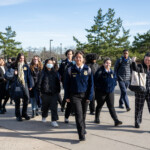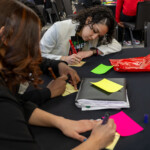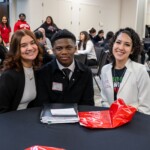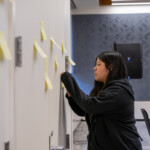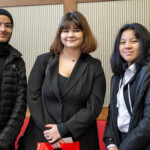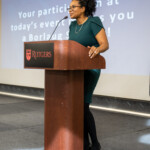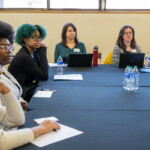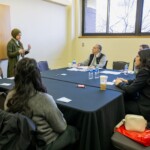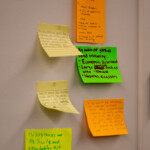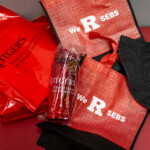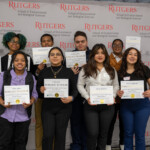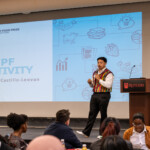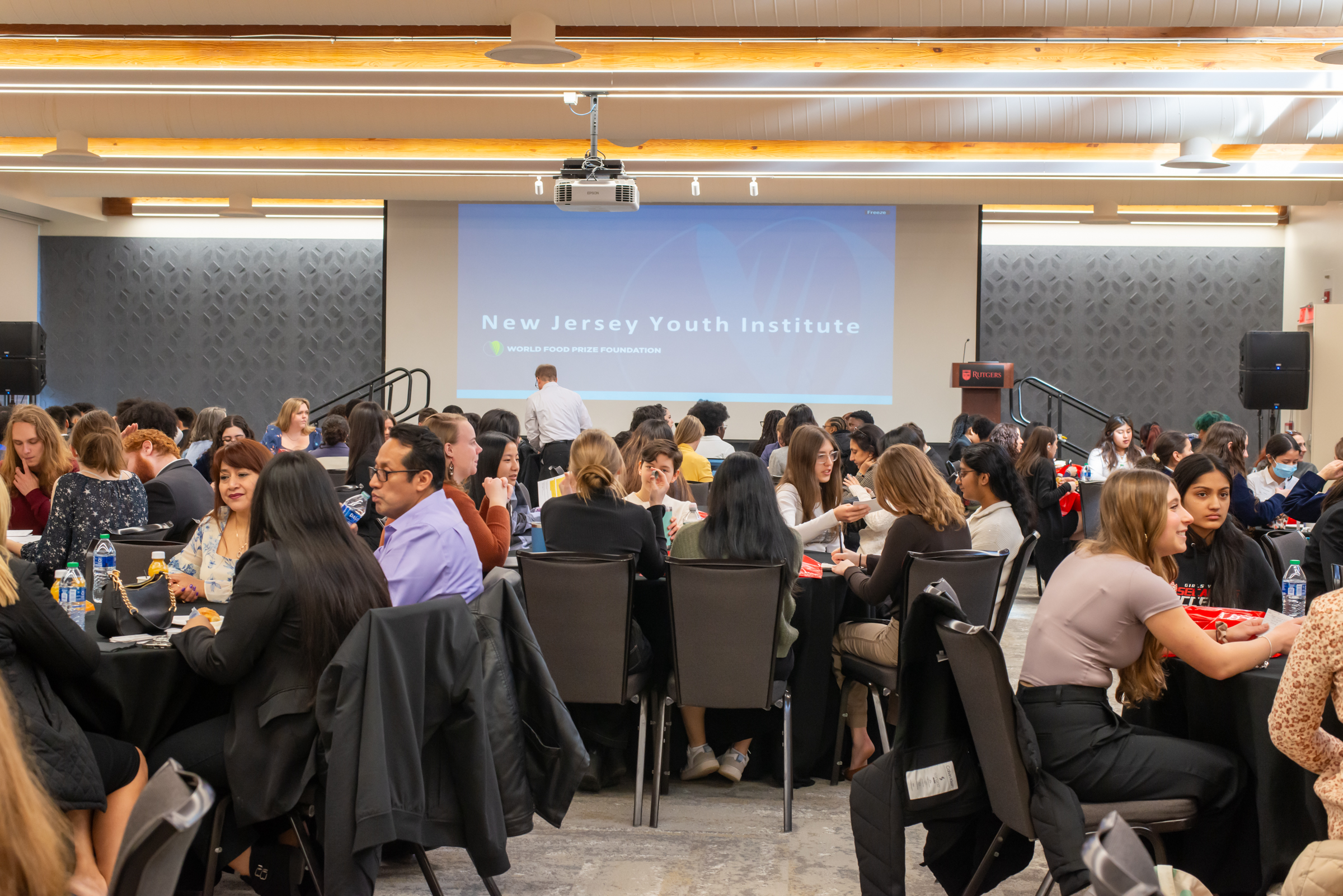
Students, teachers, and parents gathered in the Busch Student Center for the event. Photo: Office of Public Outreach and Communication.
On March 8, high school scholars, expert judges, and teachers gathered at the Busch Student Center for the New Jersey Youth Institute (NJYI) event supported by the World Food Prize Foundation and hosted by Rutgers School of Environmental and Biological Sciences (SEBS). The mission of the World Food Prize is to inspire action in sustainability and ensure the quality, quantity, and availability of food for all. Through this interactive and supportive learning environment, high school students have the opportunity to present their research on food accessibility, global issues, and their related health concerns in a small round-table setting led by an expert judge.
At 9 a.m., participating students filed into the student center’s Multipurpose Room, mingling with peers from other high schools and discussing their projects. Marissa from Union County Vocational School researched malnutrition in South Sudan; she created a two-pronged approach addressing the region’s current needs, such as changing diets to include fortified foods and long-term sustainability solutions, such as diversifying the locations of oil reserves to alleviate competition. Sanjit, a returning student from Hightstown High School, researched the connection between mental health and food insecurity in South Africa. He proposed a set of large language models and app development to combat both of these crises.
Serafina Smith-Mathos, Assistant Dean of Recruitment and Advising at SEBS, made opening remarks to the room of buzzing students, congratulating their achievements and promising a rewarding day ahead. Ann Gould, Dean of Academic Programs, also made opening remarks, revering the students’ hard work and giving information about possible careers in science and sustainability at SEBS.
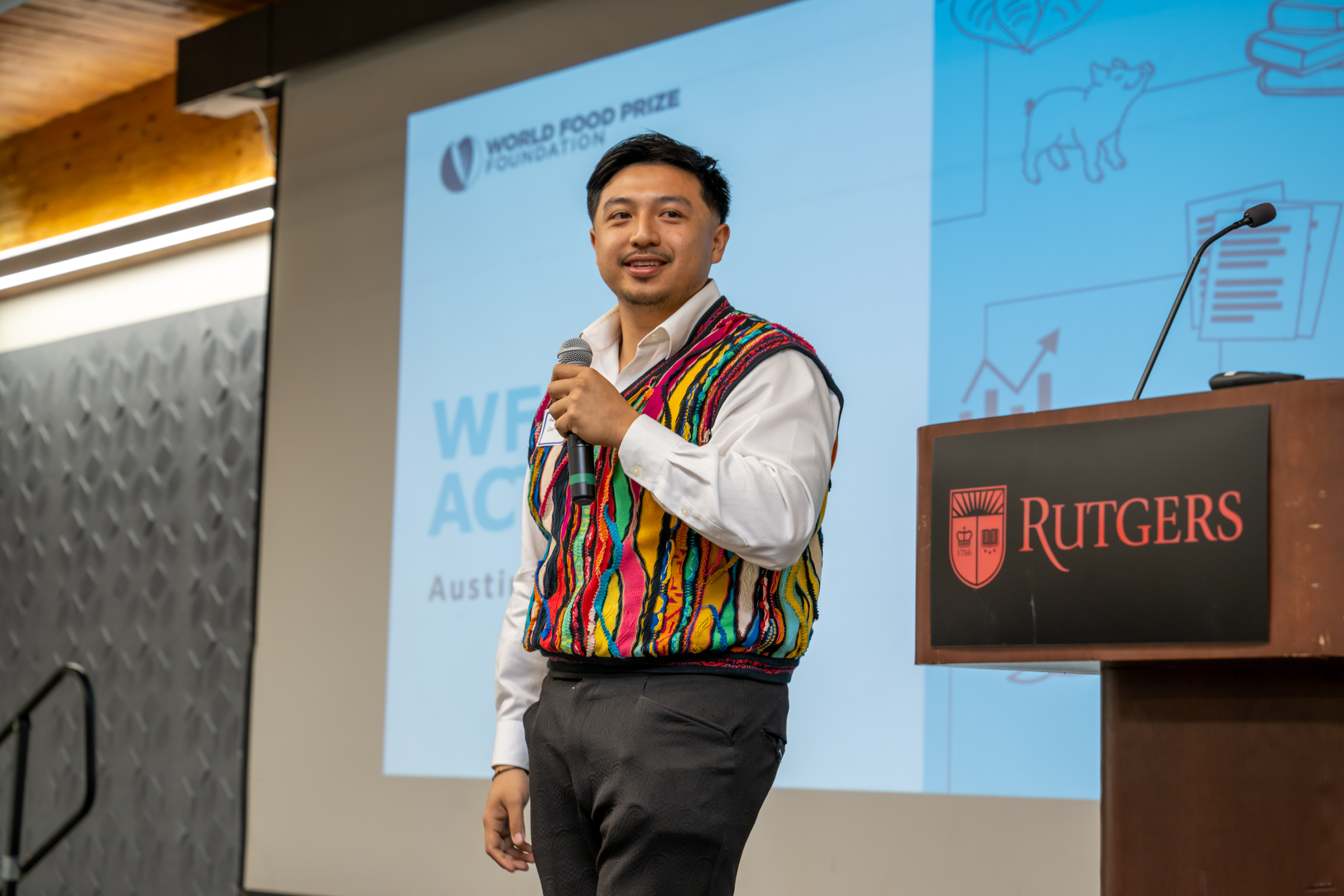
Austin Castillo-Leovan from World Food Prize leading students in the activity. Photo: Office of Public Outreach and Communication.
Following these remarks, half of the students gave their presentations while the other half stayed in the Multipurpose Room for an activity led by Austin Castillo-Leovan, Program Coordinator for Global Youth Programs at World Food Prize. Many of the students researched food insecurity crises in other countries, and Austin prompted students to think about what examples of food insecurity are happening in their own communities. A group of students shared how their school’s lunch program provided less nutritious food to the students in need than regular school lunches. Students were also asked to write possible reasons for food insecurity on colorful paper that covered the room’s walls.
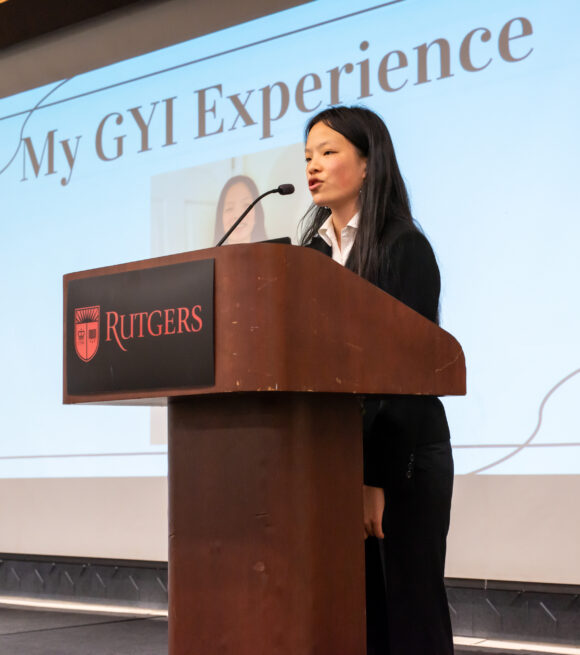
Keynote speaker Julia describing her experience at the GYI and NJYI. Photo: Office of Public Outreach and Communication.
Before participating in the activity, the other half of the high school students gave their round-table presentations led by an expert judge. In groups of six to seven, students had the opportunity to present their research to their peers and receive feedback. Stella Campbell is a first-time expert judge and found the experience extremely rewarding; she said participating in this event as a judge gave her the special opportunity to interact with high school students considering a career in food equity, all of whom she may not have otherwise met and learned from.
To conclude the event, students were given certificates, deeming them Borlaug Scholars, to reward them for their participation and hard work. Furthermore, Julia, a returning student to the New Jersey Youth Institute, was the event’s keynote speaker and detailed her inspirational experience with the Institute. Julia was able to attend the Global Youth Institute (GYI), a week-long academic conference in Iowa, where she met with global leaders in science, industry, and policy and connected with other student leaders from around the world. She discussed how gratifying the Global Youth Institute was in enhancing her leadership skills and allowing her to meet like-minded individuals; the students are able to share their research but also connect beyond their projects, creating long-lasting relationships and building a community passionate about solving food inequity.
This article was written by OPOC Intern Emily Ranieri.

